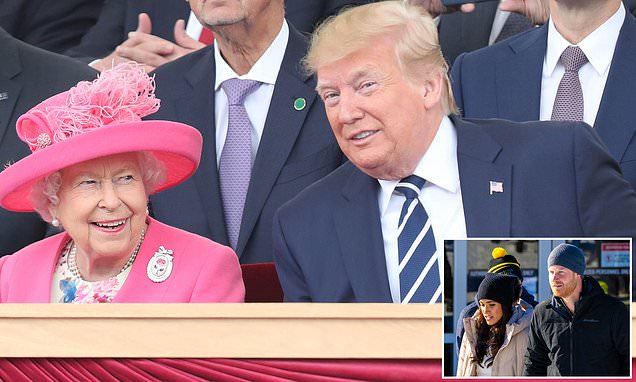The News
Prince Harry’s Visa Controversy: A Battle Over Privacy and Transparency
In a dramatic twist to the ongoing saga surrounding Prince Harry, a conservative think tank has taken aim at the legitimacy of his U.S. visa.
This legal tussle has not only captured headlines but has also reignited the age-old debate of privacy versus transparency.
The U.S. government has staunchly defended Harry's right to keep his immigration records confidential, asserting that his personal life should remain just that—personal.
At the center of this controversy is the Heritage Foundation, which has raised questions about whether the Duke of Sussex received any special treatment when applying for his visa.
Their inquiry stems from Harry's candid revelations in his memoir, “Spare,” where he openly admitted to past drug use, including cocaine and psychedelics.
Such admissions typically raise red flags in the visa application process, leading critics to speculate whether Harry's royal status played a role in the Department of Homeland Security's (DHS) approval of his visa.
The Heritage Foundation's lawsuit, filed earlier this year, seeks to unearth Harry's visa application and related documents.
Their goal?
To determine if the Duke was truthful in his disclosures and if the DHS adhered to standard procedures.
They argue that Harry's documented drug use brings into question whether immigration laws were applied uniformly.
The think tank insists the public has a right to know if an exception was made for someone of Harry's stature.
Published earlier this year, “Spare” offered an intimate look into Harry's life, touching on his battles with grief and his experiences with drugs.
He described these moments as crucial to his self-discovery, particularly in dealing with the loss of his mother, Princess Diana.
While many praised his openness, it also raised eyebrows regarding his immigration status, given U.S. laws that complicate visa applications for individuals with a history of drug use.
In September, a federal court ruled in favor of the U.S. government, prioritizing Prince Harry's privacy over public interest in the case.
Judge Carl J. Nichols reviewed the immigration records privately and found no wrongdoing on the part of the DHS.
The ruling effectively put a halt to the Heritage Foundation's case, but the group has indicated plans to appeal, claiming the court's decision only heightened their suspicions.
Mike Howell, head of the Heritage Foundation's Oversight Project, expressed disappointment with the ruling, suggesting that redacted information in government filings hints at undisclosed issues.
He stated, “These very curious redactions point to something serious afoot,” indicating their determination to continue pursuing this matter.
The foundation believes the public deserves to know whether immigration laws are applied fairly.
They frame their challenge as a fight for government transparency, accusing DHS of potentially favoring Prince Harry.
Meanwhile, the Biden administration stands firm, asserting that the visa process was conducted appropriately and that evidence presented in court dismisses any claims of misconduct.
Government lawyers argue that the public has already been provided with ample information without infringing on Harry's privacy.
They caution that disclosing more details could compromise his privacy rights and set a troubling precedent for future cases.
The court's insistence on additional materials reflects its commitment to uncovering facts while respecting privacy concerns.
This legal battle has sparked broader conversations about the balance between privacy and public interest, especially concerning high-profile figures.
Critics argue that celebrities like Harry should be subject to scrutiny, particularly when their actions could impact ordinary citizens.
Conversely, advocates for privacy warn that releasing Harry's immigration records could jeopardize protections for individuals in sensitive situations.
For Prince Harry, this case adds another layer to his complicated relationship with the media and public perception.
Since stepping back from royal duties and settling in California, he has faced relentless scrutiny, often accused of seeking privacy while simultaneously courting publicity.
The controversy also raises questions about the influence of celebrity status in legal matters.
As the Heritage Foundation prepares to appeal, the implications of this case extend beyond Harry himself.
Future rulings could redefine how privacy and public interest are balanced in immigration disputes involving public figures.
The Biden administration's unwavering defense of Harry's privacy signals its readiness to confront further challenges head-on.
Currently, Harry's immigration records remain sealed, and allegations of government misconduct have yet to be substantiated.
While he has chosen to focus on philanthropic endeavors and personal projects, the legal drama continues to unfold, highlighting the complexities of navigating public life as a global celebrity.
As this story develops, it serves as a reminder of the intricate interplay between fame, privilege, and accountability.
The outcome of the Heritage Foundation's appeal could significantly influence public policy regarding privacy rights, leaving many to wonder how this legal saga will ultimately unfold.




































































